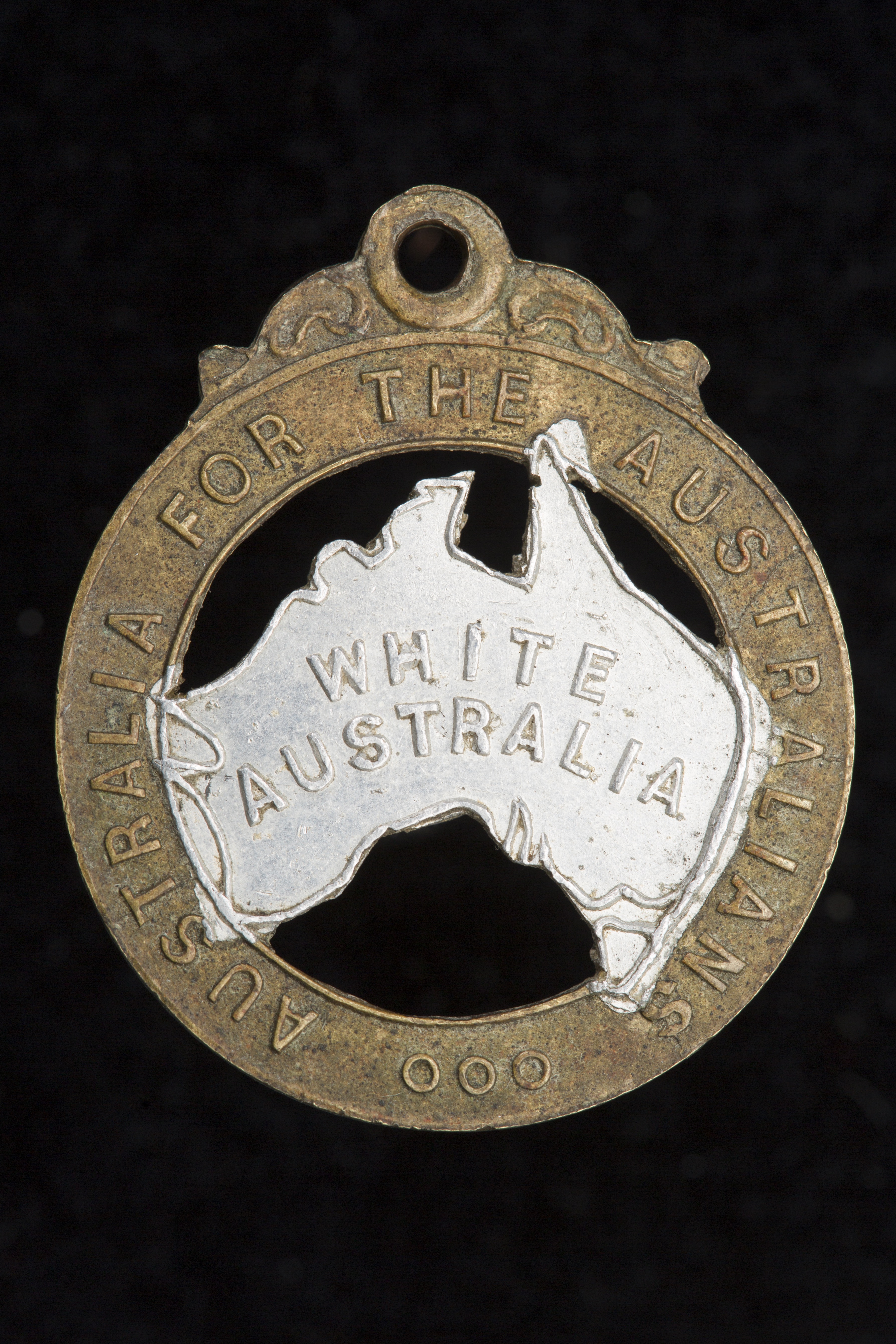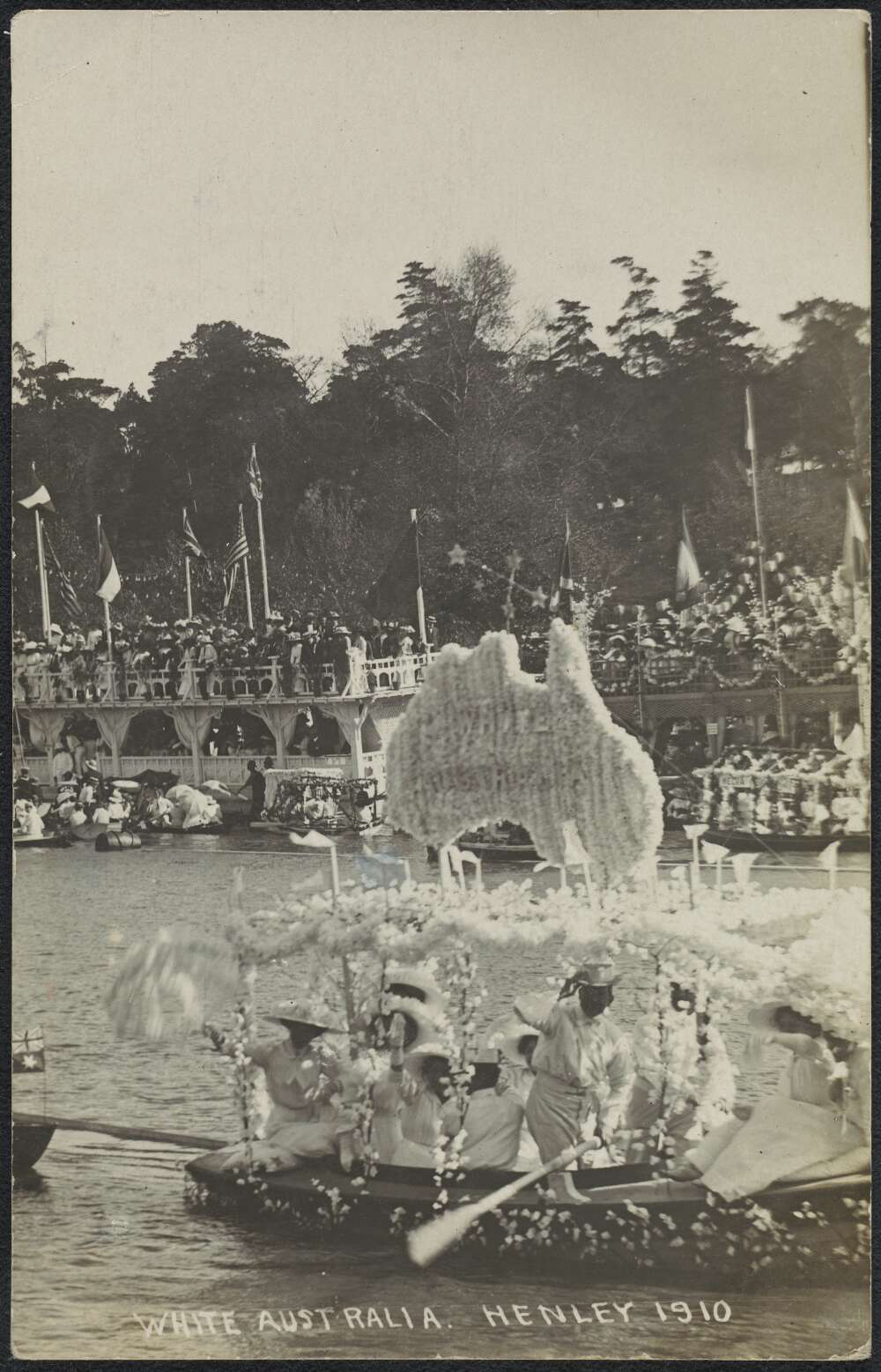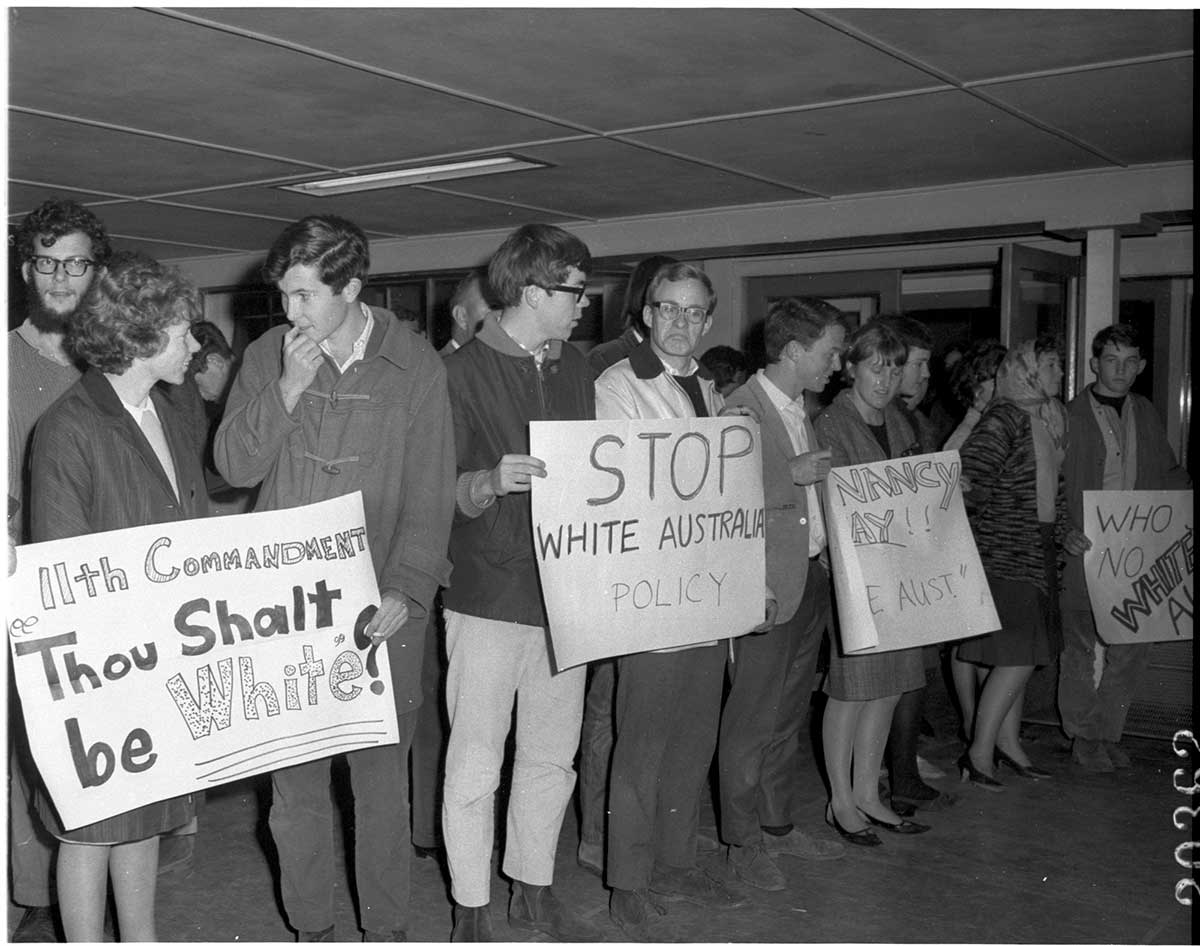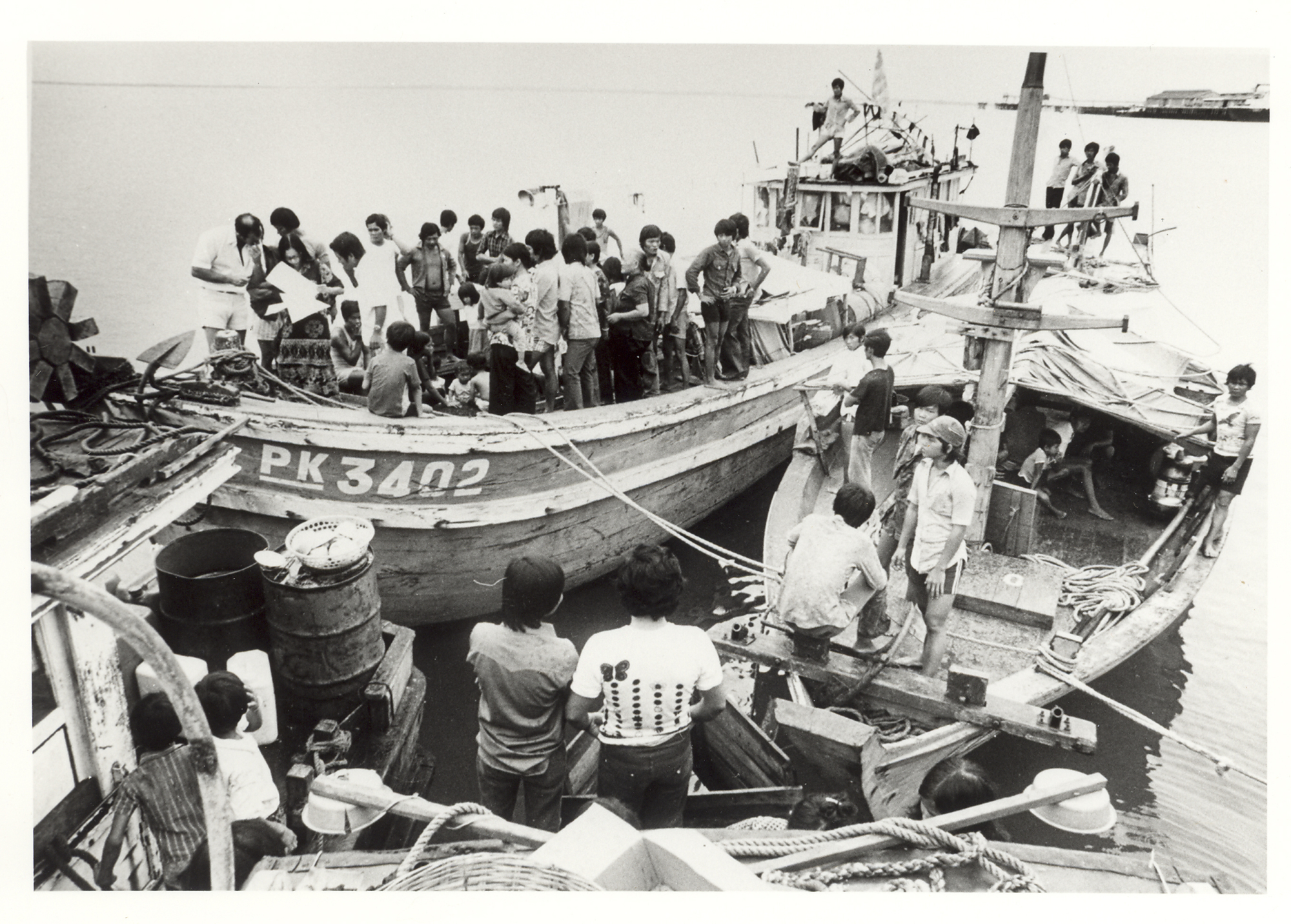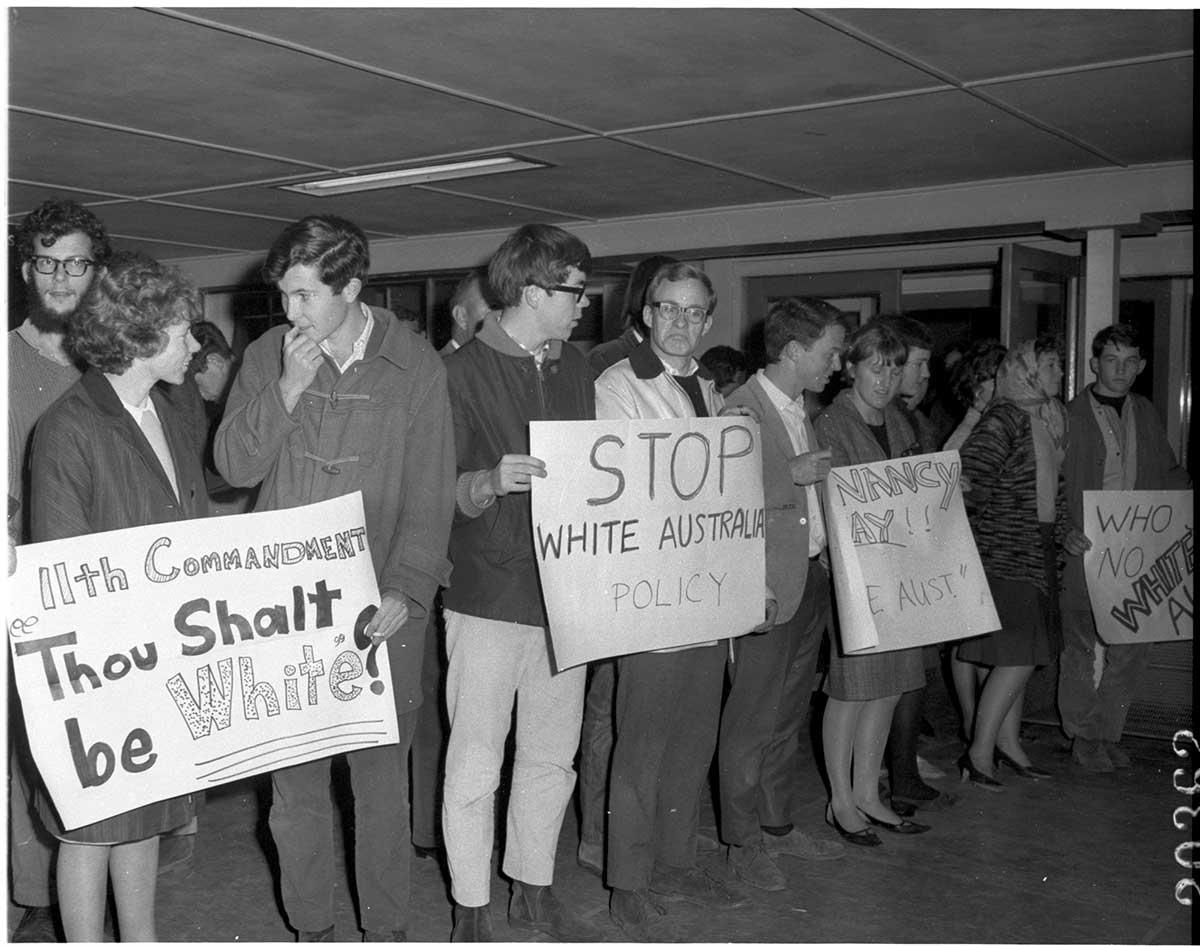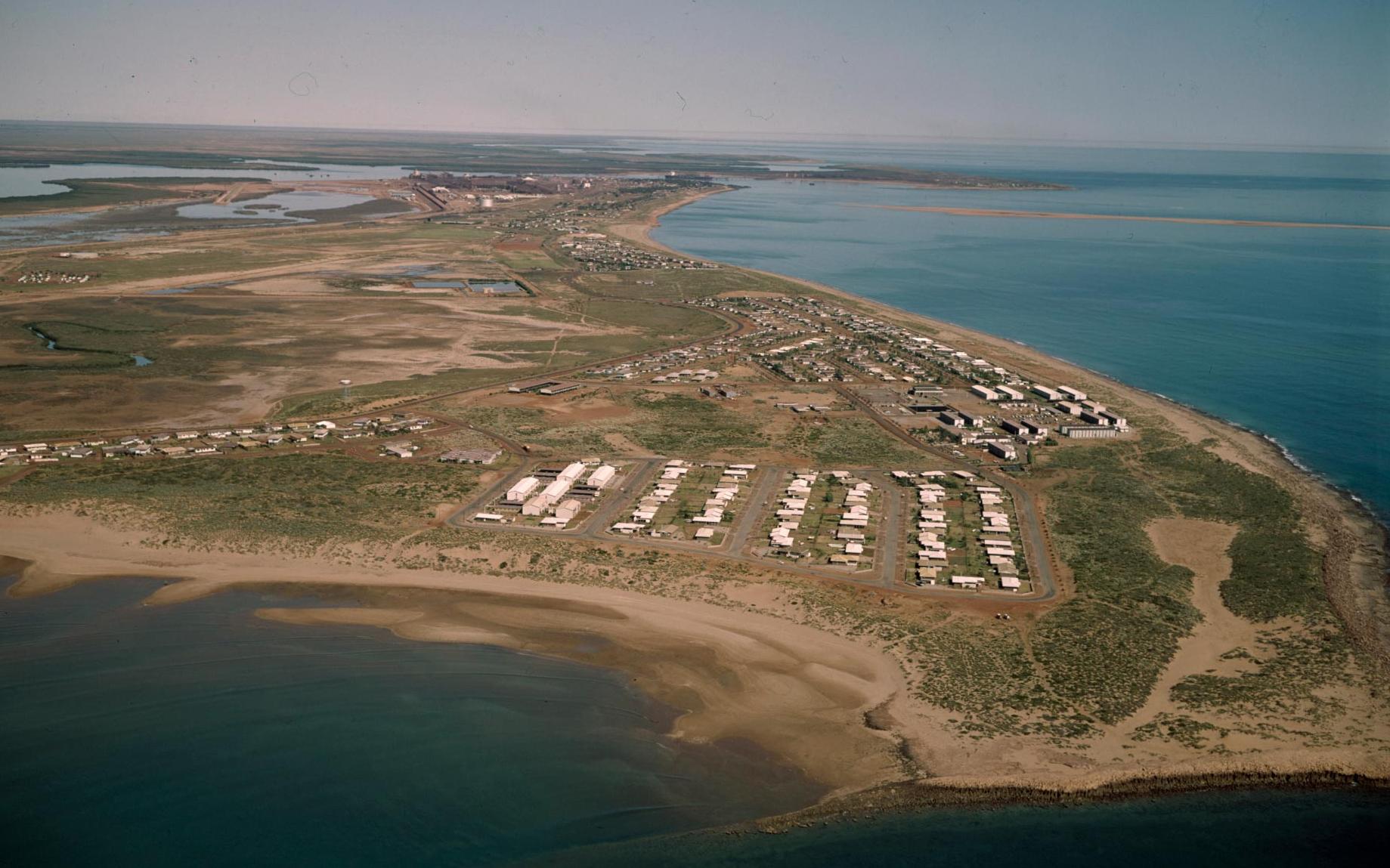Learning module:
Migration experiences Defining Moments, 1945–present
Investigation 3: Ending the White Australia policy
3.4 1976 The first postwar ‘boat people’: First arrival of Vietnamese refugees by boat
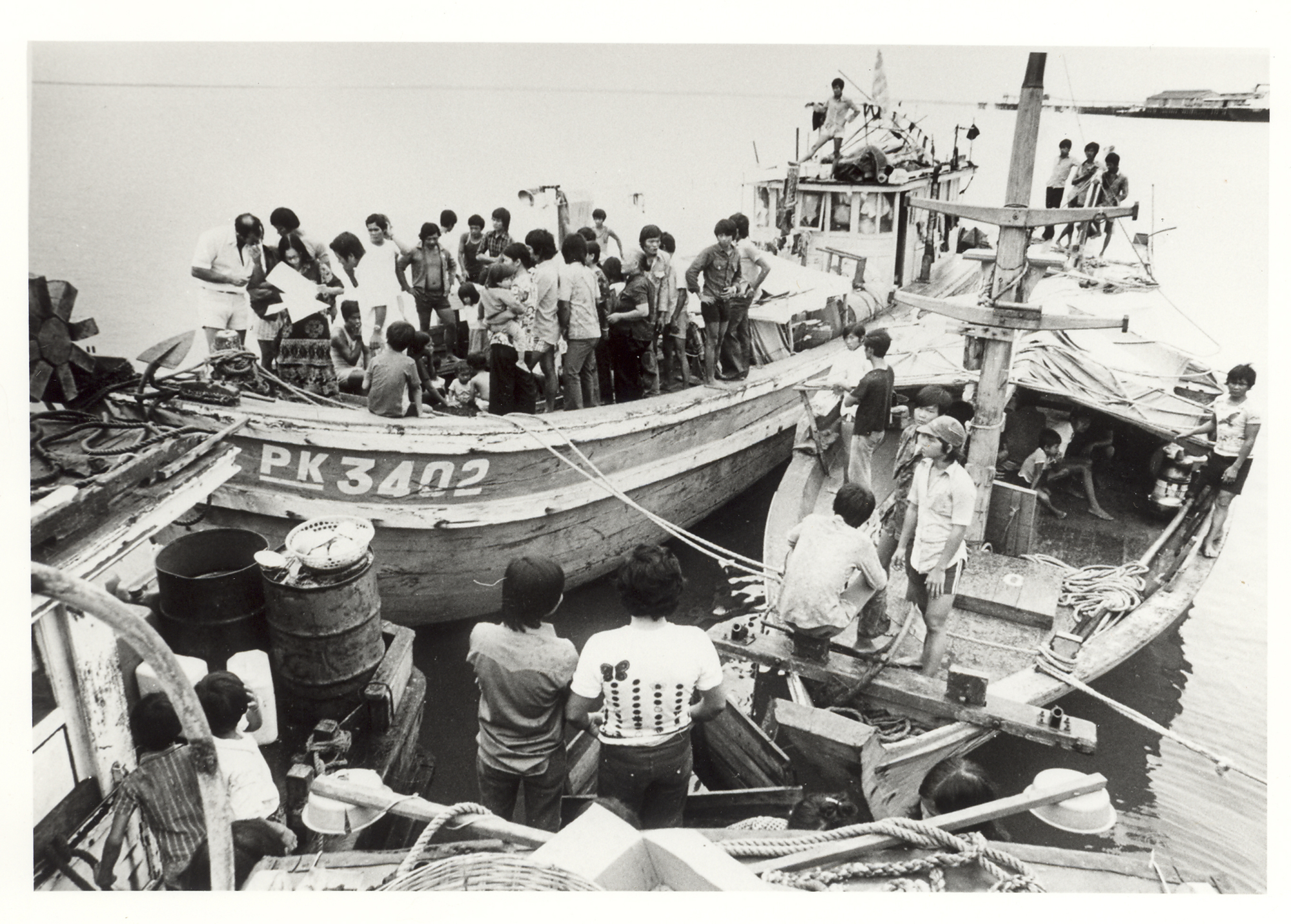
Read the information in the Defining Moment in Australian history: 1976 First arrival of Vietnamese refugees by boat and use it to answer these questions.
1. On 26 April 1976 a motor fishing vessel, carrying 38 Vietnamese refugees, landed in Darwin harbour. Why was this a significant event?
2. Why were there refugees from Vietnam at this time?
3. What was the Australian involvement in the Vietnam war?
4. Why did the Kein Giang end up in Australia?
5. How did the Australian Government respond to the Vietnamese refugee situation?
6. How did these policies affect Australia’s population?
7. Between 1976 and 1983 the Australian Government took about 70,000 Vietnamese refugees. Of those only 2069, or less than 3 per cent, arrived in 60 boats. The rest were brought to Australia from refugee camps by air as part of an organised humanitarian immigration program. Why do you think we have an image of Vietnamese refugees as ‘boat people’?
Look back at the Key questions. Which of these questions do you think you can now answer fully? Which need more research?
8. Now complete this sentence:
Exploring further
Read this account by Voung Thanh Loc and Voung Thanh’s father, who was a Vietnamese refugee who arrived in Australia as part of the refugee program in 1985. Think about what the story tells you about:
- his reasons for migrating
- the problems he faced on the journey
- the help he received (and refused)
- his problems adapting to a new country
- his experiences of being a migrant
- the qualities shown by him
- the impact of the experience on his children
- the place of his family’s Vietnamese culture in their new country.
From there (Vietnam) to here (Australia)
‘A boatperson's story of deprivation and determination to find another homeland.
In 1975 Vietnam was taken over by Communists from the north. Since that day many people who worked for the South Vietnam government were in jail. Everything was changed, the life became miserable, and we had no religion and no freedom. From 1975 to 1990 many people left Vietnam by boat and they became Vietnamese refugees or boat people. Though just about 60 per cent of the boat people got lucky to come to the country they liked. Another 40 per cent died on the sea or were killed by Thailand's pirates.
Most people who escaped from Vietnam have accepted that anything can happen to them, and bartered their property and their life. Many people were jailed by cheaters or chased by policemen, but they did not lose their spirit and they tried to leave if they have the chance. Therefore, there are many Vietnamese people living around the world now, and the following is my dad's story.
“I was living with my family with eleven people; I had eight brothers and one sister. We worked in a grocery store, the family's business, so my family were middle class. Life was hard when the Communist came. My family could not do business and we had to live with worry and fear with the local government watching, because I had two brothers who worked for the South Vietnamese government.
One day my father told us to try to leave Vietnam and we started planning for that. Ever since my life has had a big change. All my brothers escaped one at a time, all except me. I was unlucky, I had escaped seven times and I was jailed two times. The first time was for six months, the second time was for one year and I paid corruption money to get out of jail. Despite the fact, that my escape was a failure, but I did not give up or get weary.
So the following summer in the year 1984 I escaped again and after seven days I arrived in Malaysia. Every trip has a different pitiable story; my trip had a story too. When I left Vietnam on a small boat with fifty other people, my boat was unseaworthy because it was very small, just about 8 metres long and 3 metres wide but it carried fifty people.
The people looked like sardines in a can. The engine was very old and it did not have a hooded cover on top. The owner told us that a bigger ship would be waiting out in the sea, but we could not see one, we had been tricked. We realised now how important escaping was, it was too late for us to return. In that situation we had a hazardous voyage, so we decided to keep going with hope for any ship on the sea to save us, because the weather was very good and we just hoped and prayed together.
When we had been out to sea for about ten hours, the engine had broke down. We did not have any sails or paddles to keep the boat going, so the boat kept moving without any control or guidance. The food was scarce and can only last for two days. The third day we just drank water when it rained. We saw some ships on the way, and we signalled S.O.S, but they did not stop to help.
We were desperate and exhausted. Suddenly on the seventh day at night, my boat came to shore. We did not know where this place was until the police came and we knew we had arrived in Malaysia. After that, they took us to Pulau Bidong Refugee Camp; it was a small island of Malaysia. Now I thought that my story was too good to be true. I stayed at a refugee camp for about nine months, then I came to Australia under my brother's sponsorship. I arrived in Melbourne in the spring of 1985. I felt very strange when I got the bus from Melbourne airport to the Midway Hostel, I saw many things. The traffic, the houses, the life were all different to my country and many gardens filled with beautiful flowers. I started to learn about the Australian way of life.
I was very worried about my new life here, and whether I would be able to find a job, because my English was very poor. Sometimes I felt very upset because of my language problem, and I got very homesick.
I stayed at the Midway Hostel for about one month, then I moved out because I had some friends who found a job for me. I worked as a jewellery manufacturer, because I was a jeweller in Vietnam and I felt a bit happier then.
I worked in this factory in Melbourne for about three years, where I learnt many interesting things about my job.
In 1999 I moved to Sydney because the weather in Melbourne was not suitable for my wife and my children, they were always getting sick.
At the moment, my children like living in Sydney and they have a very good school too. I feel very lucky that my family is living here and the education is very good for my children. I also think that, Australia is a lucky country for everyone so I love Australia, the country my family is living in.”
That is my father's story and he told me that Australia is his second native country, but he will never forget Vietnam. He also told me that I am very lucky to be born here. Many children in Vietnam are unlucky because they are very poor, they work hard and they cannot go to school.
Now I come to school to learn the Vietnamese language every Saturday, because I was born here so I don't know much about Vietnam.
I thank my Vietnamese teacher for teaching me about Vietnamese culture. Whenever I come to Vietnamese class, it always reminds me of my roots.’
Migration Heritage Centre New South Wales, From There (Vietnam) to Here (Australia), http://www.migrationheritage.nsw.gov.au/stories/from-there-to-here/from…, viewed 2 October 2020
9. What five questions would you ask Vuong Thanh’s father to learn more about his experiences?
10. What five questions would you ask Vuong Thanh Loc to find out more about his attitudes to the family migration experience?
The National Museum of Australia has a Vietnamese fishing boat called the Hong Hai, which carried 38 people to land at Darwin after a dangerous seven-week journey in 1978. Read more about the Hong Hai epic journey.






